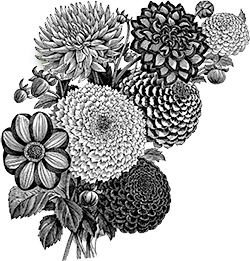To read more by topic or date, see our Newsletter Archives page.
June 13, 2022
“In June, as many as a dozen species may burst their buds on a single day.
No man can heed all of these anniversaries; no man can ignore all of them.”
-Aldo Leopold, American author, philosopher, ecologist and environmentalist (1887-1948)
Order Iris and Daylilies Now for July Planting!
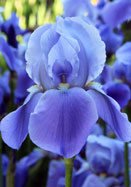
|

|

|

|

|

|
We're kicking off summer by offering July-shipped iris and for the first time this year we're including daylilies! We've expanded both our iris and daylily sections to include an additional 14 varieties not offered this spring. If spring comes too late to plant iris in April or we sold out of your favorite variety this spring, this is your chance to add them to your garden. We’ll be accepting orders through July 15th and shipping July 11th-29th. The rhizomes will be fresh-dug and eager to go into the ground.

|

|

|

|

|

|
A Novel Mulch for Peonies at Hedgerow Farm

|
Our long-time customer and friend Lisa Douglas reports that on her historic farm in Georgia not only do they fertilize their bulbs only with sheep manure from their flock of Jacob sheep, they used fleece for the first time this year as a mulch to suppress weeds in one of their peony beds. She sent us this lovely photo of both the “glorious” peonies this spring and “our Tennesse Walker, 18 years old, who hopes for a handful of orchard clovers, and we oblige him, lovely horse.”
Hurray for Pollinators!!
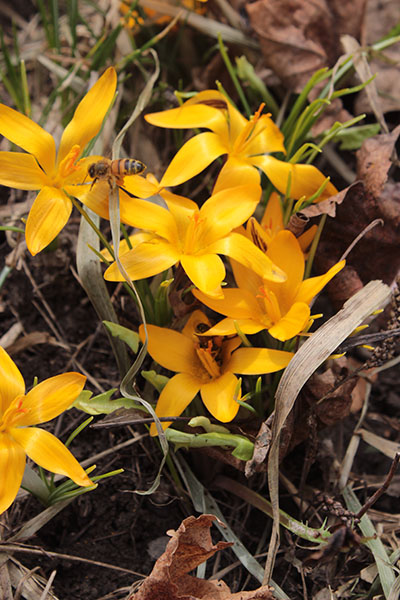
|
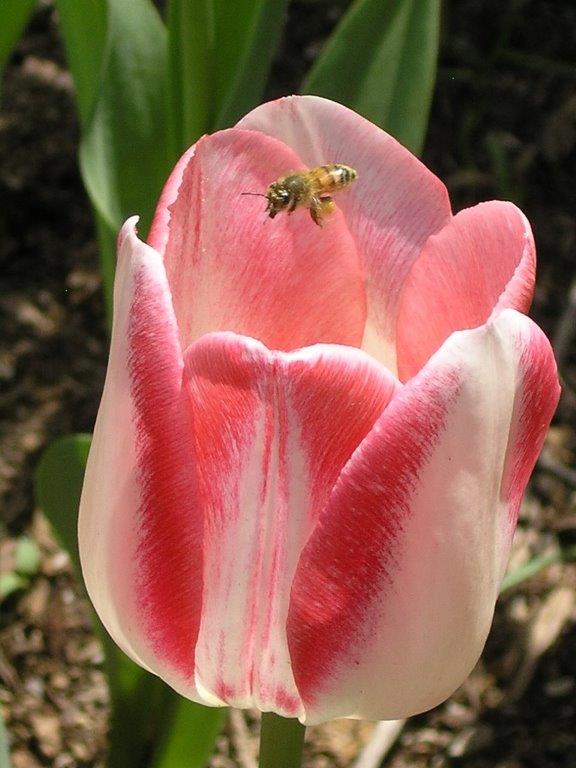
|
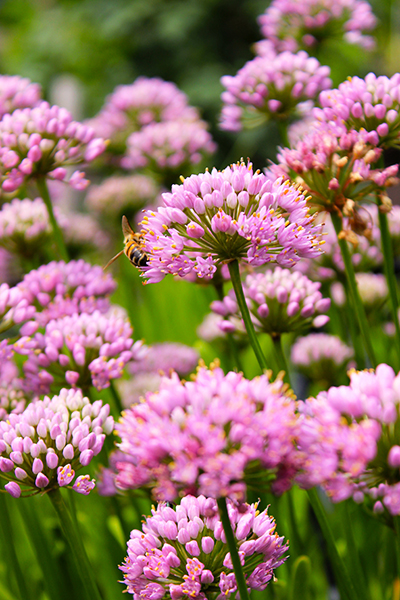
|
National Pollinator Week is June 20-26 this year and we’re hoping gardeners everywhere will join the celebration. It’s a time to spread awareness about how important pollinators are and how we can support their populations, many of which are declining due to habitat loss and pesticide use. As the organization Pollinator Partnership says, “Birds, bats, bees, butterflies, beetles, and other small mammals that pollinate plants are responsible for bringing us one out of every three bites of food. They also sustain our ecosystems and produce our natural resources by helping plants reproduce:” You can look for local events like walks, webinars, plantings and parades on their website’s map https://www.pollinator.org/pollinator-week. As gardeners, we can help by growing pollinator-friendly plants to provide a long season of bloom and habitat. In our Northern climate, honeybees need nectar and pollen earlier than many of our native trees and flowers bloom, so bulbs that bloom in early spring help support them then. Our bee-keeping friend and customer Eileen Dickinson says that “winter aconite and crocus are really important early bulbs. I see bees all the time in the Scilla siberica, bringing blue pollen into the hive. Grape hyacinths are good. And of course summer-blooming German garlic.” We’ve also found that ‘Atom’ glads are great for hummingbirds and bees love single and collarette dahlias. For specific suggestions to support your local pollinators you can find regional plant lists from the Xerces Society https://xerces.org/pollinator-conservation/pollinator-friendly-plant-lists and the Pollinator Partnership https://www.pollinator.org/guides.
A Few Bulb Tips for June
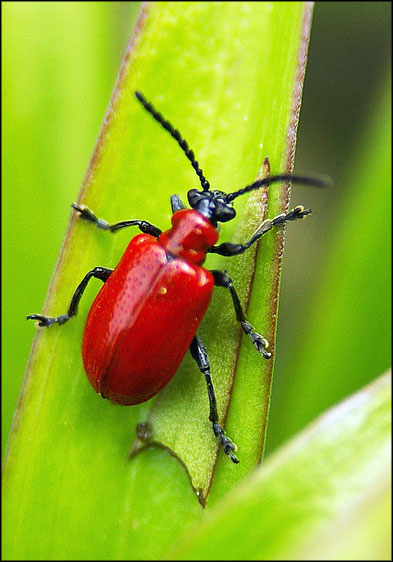
|
Dead-Heading Iris and Peonies – Cutting faded blooms redirects your plants’ energy from seed-making to future growth and bloom. Cut down iris bloom-stalks (not individual leaves) as close as possible to the rhizome, but cut back peony bloom-stalks no more than is needed to make the plant look good.
Dividing Daffodils – When daffodils get overcrowded, they bloom less. The best time to dig and divide them is when their foliage yellows or shortly afterwards. You can replant them immediately or store until fall.
Multiplying Your Rarest Tulips – In most gardens, the best way to give your rarest tulips the dry summer rest they need is to dig them up after the foliage yellows and store them in a dry, well-ventilated place – maybe hanging in mesh bags from the rafters in your basement or garage. Then put a note on your calendar so you don’t forget to replant them in the fall!
Staking Dahlias – For a bushier plant, pinch out the center shoot after three or four sets of leaves develop. Although dahlias grow upright and may look like they don’t need support, they do. Learn more.
Controlling Red Lily Leaf Beetle – The earlier you find and destroy these pests – which are currently expanding beyond New England and into Michigan – the better. Learn more.
Share Our Gazette with a Friend
Please help us “Save the Bulbs!” by forwarding our newsletter to a kindred spirit, garden, museum, or group.
To Reprint Any Part of Our Gazette . . .
Simply credit www.oldhousegardens.com.


